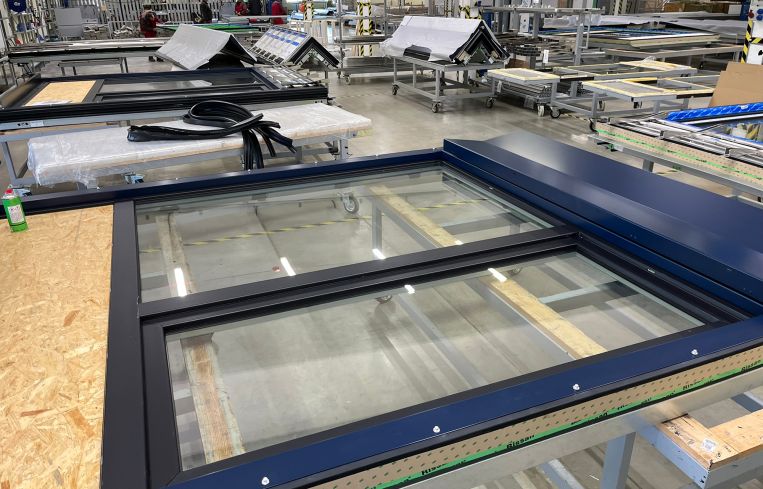AI-Powered Prefab Platform Dextall Raises $15M in Series A Round
Manhattan-based proptech startup designs and fabricates building exteriors
By Philip Russo July 8, 2025 9:00 am
reprints
Dextall, a construction technology company that integrates design software with off-site manufacturing, announced Tuesday that it has closed a $15 million Series A round to scale its artificial intelligence-powered prefabrication platform nationwide.
L+M Development Partners, Essence Development and Simpson Strong-Tie led the round. Winklevoss Capital also participated in the round.
The company focuses on high-rise residential buildings, particularly affordable housing in New York City, where it can reduce labor requirements by 90 percent, said Aurimas Sabulis, founder and CEO at Dextall.
“We have software that ultimately works with the architectural and design community to bridge the gap up to the point where the construction needs to be executed,” said Sabulis, adding that the company can provide cost estimates and carbon footprint assessments early in the design stage.

Dextall’s platform combines Dextall Studio, proprietary software that converts schematic designs into detailed architectural and fabrication drawings in under a week — a process that often otherwise takes up to 36 months — with a modular façade system manufactured by certified regional partners and delivered through Dextall’s AI-powered operating system, according to the Manhattan-based company founded in 2020.
Dextall also claims to enable faster and safer high-quality construction that aligns with decarbonization targets and the repair rules under New York City’s Local Law 11. Its model emphasizes a system for dismantling buildings bit by bit, reducing landfill waste.
While Dextall has had financial backing from venture capital firms, affordable housing developers led its latest funding round, said Sabulis. “To be frank with you, 2024 wasn’t the greatest year for a lot of VCs. So we had a lot of interest, but a lot of VCs have really scaled down from what they were doing in 2022.
“We raised the money at this point because we have started hitting an inflection point of our growth,” Sabulis added. “Ultimately, we have proven all the concepts in terms of our software usage and in terms of physical product adaptability and usage on the real buildings. We figured out the formula that works, and, ultimately, we have raised the capital to double down on the efforts that yielded those results. The funding will further develop our software and our AI capability, so we can further streamline the design and coordination process and basically scale the operations.”
L+M Development Partners is a national leader in affordable and mixed-income housing, responsible for more than $20 billion in development and over 55,000 residential units built, preserved, or under construction. Essence Development, founded by former NFL safety Jamar Adams, manages a $6 billion pipeline that includes nearly 4,000 affordable and workforce housing units and 3,000 market-rate units across the Northeast corridor. Simpson Strong-Tie is a global leader in structural connectors, with $2.2 billion in 2024 revenue and a worldwide materials supply network spanning more than 50 facilities.

In addition to its development company clients, SOM and SLCE Architects are using Dextall panels on upcoming designs, while contracting giants Turner Construction and Suffolk Construction are actively installing the panels on high-rise projects currently underway.
“One of the big things that we love about our business is that about 70 percent is affordable housing high-rise buildings in New York City,” said Sabulis. “So, if we can deliver the most advanced construction experience and practices in affordable housing, we know that we can deliver that anywhere. We can reduce the design and coordination process, and enclose these buildings 80 percent faster compared to traditional construction processes.
“And, then, most of the developers and general contractors are facing labor shortages. We need 10 times less labor to install our products versus traditional practices. So I think that we are hitting a lot of pain points and checkmarks in the headwinds the industry is facing today.”
Philip Russo can be reached at prusso@commercialobserver.com.



